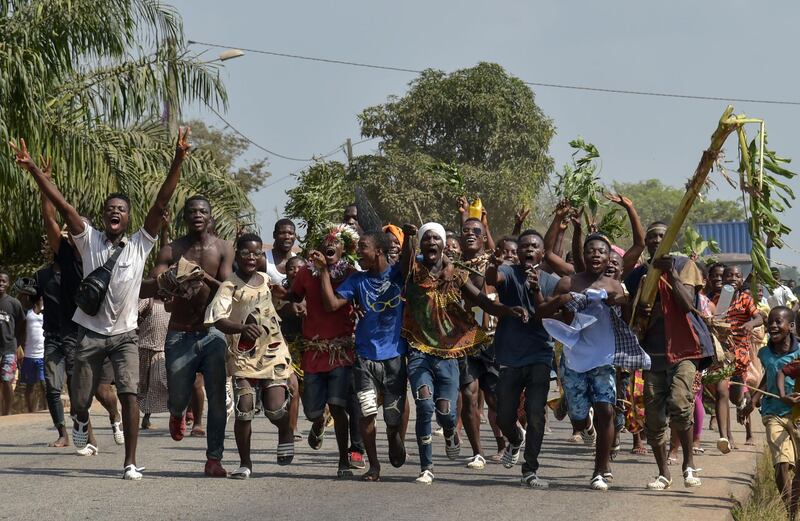After the shock acquittal of former Ivory Coast president Laurent Gbagbo and his right-hand man on Tuesday at the International Criminal Court, prosecutors vowed to push on with an appeal and cautioned against releasing the men.
In Tuesday's ruling, judges at The Hague-based court found that prosecutors had failed to prove any case against Mr Gbagbo and they could no longer justify his detention, more than seven years after he was arrested and extradited to the court.
The former president’s acquittal was criticised by victims' groups for those who died in violence following Ivory Coast's 2010 elections that Mr Gbagbo was accused of orchestrating. But it was welcomed by his supporters and opened the possibility that he could return to politics in the Ivory Coast.
As the court reconvened on Wednesday to discuss the terms of Mr Gbagbo's release, prosecutors said that they intended to appeal his acquittal, once the judges publish their formal decision and full reasoning.
The prosecution filed an "urgent request" saying it "has determined that it intends to appeal... following the acquittals".
Prosecutors also said there were "exceptional reasons" to oppose Gbagbo's unconditional release, citing a "concrete risk" that he would not come back if their appeal was successful and the trial was to continue. They asked that Mr Gbagbo, therefore, not be allowed to return to Ivory Coast due to concern he might not again submit to the court's jurisdiction for appeals proceedings.
______________
Read more:
ICC acquits former president of Ivory Coast Laurent Gbagbo of crimes against humanity
International Criminal Court finds itself in the dock
[ Palestinians file ICC war crimes complaint over Israeli demolition plans ]
______________
But they said they would accept his release "if the flight risk can be mitigated by imposing a series of conditions, including that they be released to a State Party... other than Cote d'Ivoire [Ivory Coast]".
Lawyers for the Ivory Coast politician said the prosecution request showed they hadn't yet come to terms with the scale of their legal defeat.
"Laurent Gbagbo is no longer an accused person. Laurent Gbagbo has been acquitted. He is no longer presumed to be innocent – he has been acknowledged as being innocent," the former president’s lawyer, Emmanuel Altit, told the court. "He was acquitted of all accusations by the prosecutors. In these circumstances it is also meaningless to consider that Laurent Gbagbo would be a flight risk, or would abscond justice – justice has acquitted him."
During the trial, which opened in January 2016, prosecutors said Mr Gbagbo clung to power "by all means" after he was narrowly beaten by his bitter rival – now president – Alassane Ouattara in elections.
Mr Gbagbo has been in detention since 2011, when he was captured by Mr Ouattara's troops, who were being aided by UN and French forces, and sent to The Hague.
In a majority decision by two judges to one, the ICC said on Tuesday that prosecutors "failed to satisfy the burden of proof to the requisite standard".
The judges said prosecutors had failed to provide evidence of a "common plan" to keep Gbagbo in power, a policy of attacking civilians, or that speeches by Mr Gbagbo or right-hand man Charles Ble Goude, who was also standing trial, incited violence.
Prosecutors called the decision "disappointing and unexpected".
But analysts said the ICC decision would at least counter one lingering criticism of the tribunal.
"One positive that the prosecutor may be able to take from this is that it undermines the notion that the ICC unfairly targets ousted African leaders," Mark Kersten of the University of Toronto told AFP.





